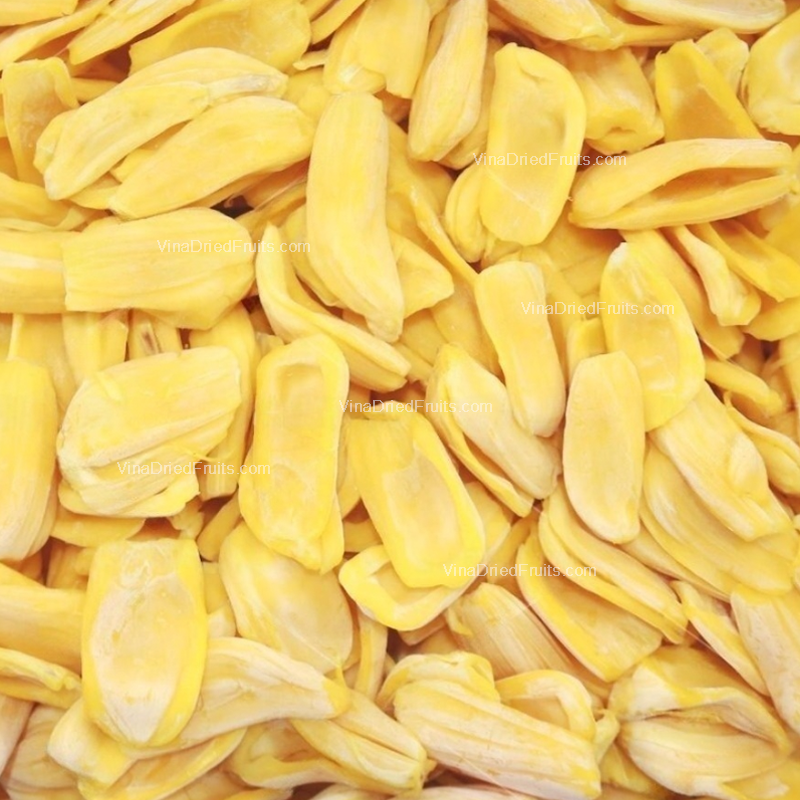A Complete Guide to Importing Dried Jackfruit: Process, Costs, and Key Considerations
- Rose
- Apr 9
- 2 min read
Updated: Apr 26
Importing dried jackfruit can be a profitable opportunity for distributors, health food brands, and specialty snack companies. As demand for natural, tropical snacks increases globally, dried jackfruit is emerging as a flavorful and nutritious option. This guide outlines the full import process, costs to consider, and key factors to ensure a smooth and successful transaction.

Why Import Dried Jackfruit?
Dried jackfruit is rich in fiber, low in fat, and offers a unique chewy texture with a naturally sweet flavor. It appeals to consumers seeking plant-based snacks with minimal processing and no added sugar or preservatives. Common markets include:
Organic and natural food stores
Vegan and vegetarian retailers
Healthy snack brands
Foodservice and repackaging companies
Step-by-Step Process of Importing Dried Jackfruit
1. Identify Target Market and Requirements
Each destination country has its own food import regulations, labeling requirements, and certifications. Common destination requirements include:
FDA Registration (USA)
EFSA Regulations (EU)
CFIA Standards (Canada)
2. Choose a Reliable Exporter
Work with trusted suppliers, preferably from countries known for jackfruit production such as Vietnam, Thailand, or Sri Lanka.
Key supplier attributes:
Food safety certifications (HACCP, ISO 22000, FDA, Organic)
Transparent traceability and production methods
Export experience and reliable logistics
3. Request Product Samples and Test Reports
Before committing to a bulk order, ask for:
Product photos and actual samples
Moisture Content Test (ideal range: 10–15%)
Certificate of Analysis (COA)
4. Negotiate Pricing and Terms
Pricing may depend on:
Order volume (MOQ usually 500kg–1 ton)
Packaging type (bulk bags vs. retail packs)
Payment terms (e.g., 30% deposit, 70% before shipment)
5. Arrange Logistics and Customs Clearance
Coordinate shipping method:
FOB (Free on Board): Exporter handles local logistics
CIF (Cost, Insurance, Freight): Includes ocean freight and insurance
Prepare documents for customs:
Commercial Invoice
Packing List
Certificate of Origin
Phytosanitary Certificate
Health Certificate
Cost Breakdown of Dried Jackfruit Importing
Expense Category | Estimated Range |
Product Price (per kg) | $3.50 – $6.00 USD |
Packaging & Labeling | $0.30 – $0.50 USD/kg |
Shipping (Sea Freight) | $500 – $1,200 USD / container |
Import Duties & Taxes | Varies by country (5–20%) |
Customs & Handling Fees | $100 – $300 USD |
Key Considerations for Importers
Shelf Life: Ideal shelf life is 6–12 months; ask for vacuum-sealed or nitrogen-flushed packaging.
No Additives: Many buyers prefer dried jackfruit with no added sugar, sulfur dioxide, or coloring agents.
Appearance: Uniform golden color and natural jackfruit aroma indicate good quality.
Seasonality: Jackfruit has peak harvest seasons. Plan purchases around availability and lead times.
Where to Find Trusted Suppliers
B2B Platforms: Alibaba, Made-in-China, Global Sources
Trade Fairs: Vietnam Foodexpo, Thaifex, Anuga
Direct Exporters: Work with factories or co-operatives with export licenses
Industry Associations: Fruit & Vegetable Associations in Vietnam or Thailand
Conclusion
Importing dried jackfruit requires attention to sourcing, compliance, and quality standards. By working with experienced suppliers and preparing proper documentation, businesses can unlock access to a growing health snack market with high consumer appeal.
If you are looking for a trusted dried jackfruit supplier, Mekong International offers high-quality, certified products with global shipping support and competitive pricing.
MEKONG INTERNATIONAL CO., LTD
Contact Name: Mr. Ninh Tran
Phone: +84 909 722 866 (Phone / Whatsapp / Wechat)
Email: ninhtran@mekongint.com












Comments